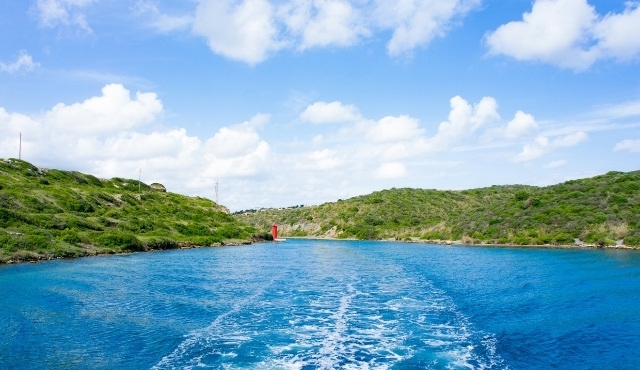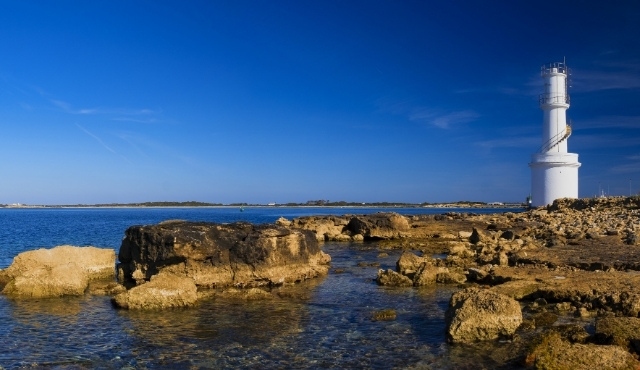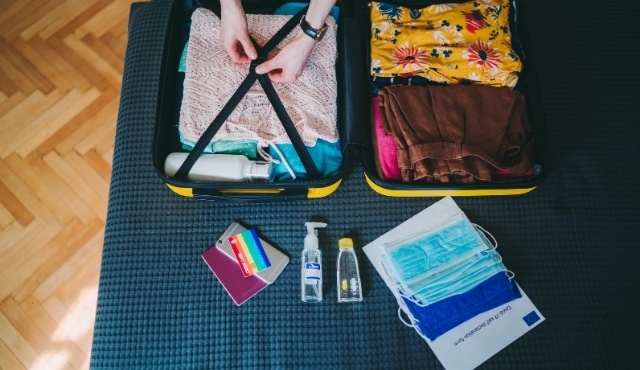Latest updates on Covid-19 and ferry travel in Spain
Everything you need to know for the perfect ferry trip!
Do I need a Covid-19 test to catch a ferry in Spain? How can I travel safely by ferry to the Spanish islands in 2023?
Find all the latest updates for ferry travel and coronavirus in Spain. Learn about the new ferry travel measures and regulations, and read tips to stay safe from Covid-19 during your ferry journey.

Leaving the port of Ciutadella in Menorca
Latest Covid-19 ferry travel updates for Spain
Currently, you can visit the Spanish islands and mainland for holiday reasons! You can catch a ferry to the Spanish islands from all mainland ports and you can also go island hopping!
There are currently no movement restrictions between different communities or destinations in the same community.
Traveling to Spain from abroad in 2023
Covid-19 travel restrictions are currently lifted in Spain. Providing proof of vaccination, recovery from Covid-19 or negative test results is not required.
Important: travel regulations for international visitors (including UK residents) depend on their country of origin.
Traveling by ferry in Spain in 2023
Currently, you can travel freely to the Canary Islands, the Balearics, the Spanish mainland, as well as Ceuta and Melilla with no restrictions. See more details about ferry travel to the Balearics and the Canaries below:
Ferry passengers traveling to the Balearic Islands from mainland Spain don't need to present any Covid-19 documents nor fill out the Health Control Form.
As for the Canary Islands, there are also no Covid-19 certificate/test requirements.
Important: bear in mind that Covid-19 measures are subject to change, depending on the virus situation in each autonomous community. Please, consult the official site of the Spanish Ministry of Health for the latest updates per region.
Ferries from mainland Spain - coronavirus travel updates
Ferries from mainland Spain normally travel to the Balearic Islands, Canary Islands, as well as North Africa, Italy, and France. The main mainland ports where ferries operate in 2023 are:
- Barcelona (Catalonia)
- Dénia (Valencia)
- Valencia (Valencia)
- Málaga (Andalusia)
- Motril (Andalusia)
- Almería (Andalusia)
- Huelva (Andalusia)
- Cádiz (Andalusia)
- Algeciras (Andalusia)
You can also travel from Spain to Morocco by ferry or visit the autonomous Spanish cities of Ceuta and Melilla.
Tip: find available ferry routes on Ferryhopper’s Map of ferries, and check availability on our search engine.

White lighthouse next to the port of La Savina in Formentera
How to stay safe during your ferry trip in Spain?
Staying safe during your 2023 ferry trip in Spain starts with individual protective measures. Depending on travel regulations, try to avoid crowded indoor spaces, wash your hands thoroughly, and avoid touching your mouth and nose.
Also, bear in mind that some ferry companies require passengers to wear masks in all indoor ferry spaces so make sure you follow the crew instructions.
Make sure you have all the necessary protective equipment, before starting your trip, and get acquainted with the ferry company measures and local guidelines.
In case you feel unwell or you exhibit any coronavirus-related symptoms before or after you start your trip, consult a medical professional as soon as possible, and try to avoid unnecessary traveling.

Protective gloves for a safe ferry trip
Here’s a list with 12+1 useful tips on how to stay safe and healthy when traveling by ferry in Spain:
- Bring your own mask, gloves, hand sanitizer, and water bottle on board the ferry.
- Thoroughly and regularly wash your hands with warm water and plenty of soap. You can also use hand sanitizer after washing.
- Book a cabin to stay with your family and friends, to avoid coming in contact with other passengers.
- Try to stay at the outdoor deck area of the ferry if the weather conditions are good.
- Refrain from sharing food and drinks, and carefully disinfect any products you purchase on board.
- Adjust your itinerary or postpone your ferry trip in case you’re experiencing any Covid-19 symptoms.
- Closely monitor the coronavirus situation at your departure point and the final destination, to make sure you can have an enjoyable and safe journey.
- Make sure your health insurance is up-to-date and that you can easily seek medical help in Spain.
- Avoid touching your eyes, mouth, and nose.
- Wash or sanitize your hands immediately after touching communal surfaces, toilet sinks, door handles, and luggage racks.
- Arrange a medical check before starting your trip.
- Cover your mouth and nose when sneezing or coughing.

Masks and sanitizers for your ferry trip
What coronavirus safety measures do ferry companies in Spain follow?
Ferry companies in Spain follow enhanced safety protocols as a response to the Covid-19 outbreak. They follow all official state regulations as regards crew coronavirus tests, temperature checks, and safety training, and they follow updates on the situation in Spain. More specifically:
- Communal and private spaces are regularly and professionally cleaned with certified products, both at the terminals and waiting areas, as well as inside the ferry.
- Some companies have introduced contactless check-in and boarding procedures, to minimize contact with the crew and other passengers, avoiding long lines at the terminals.
- Hand sanitizers are usually placed in all passenger areas at specific hygiene points, as well as staff quarters, to make sure everyone stays safe during the trip.
- Social distancing on board the ferry, as well as during boarding and disembarkation, is implemented by the crew who monitor the movement of passengers.
- Covid-19 tips and info are frequently displayed on the ferry lounge monitors to further educate passengers on ways to stay safe during the crossing.

Professional cleaner disinfecting the outdoor space of a ferry
Where to find more information about traveling in Spain amidst Covid-19?
For more information on traveling and coronavirus, you can have a look at our FAQ page, contact the ferry company serving your route, get acquainted with the guidelines provided by the World Health Organisation, and visit the official Spanish tourism website (Spanish version only) for all queries related to the coronavirus situation in Spain.
#SailSafe
